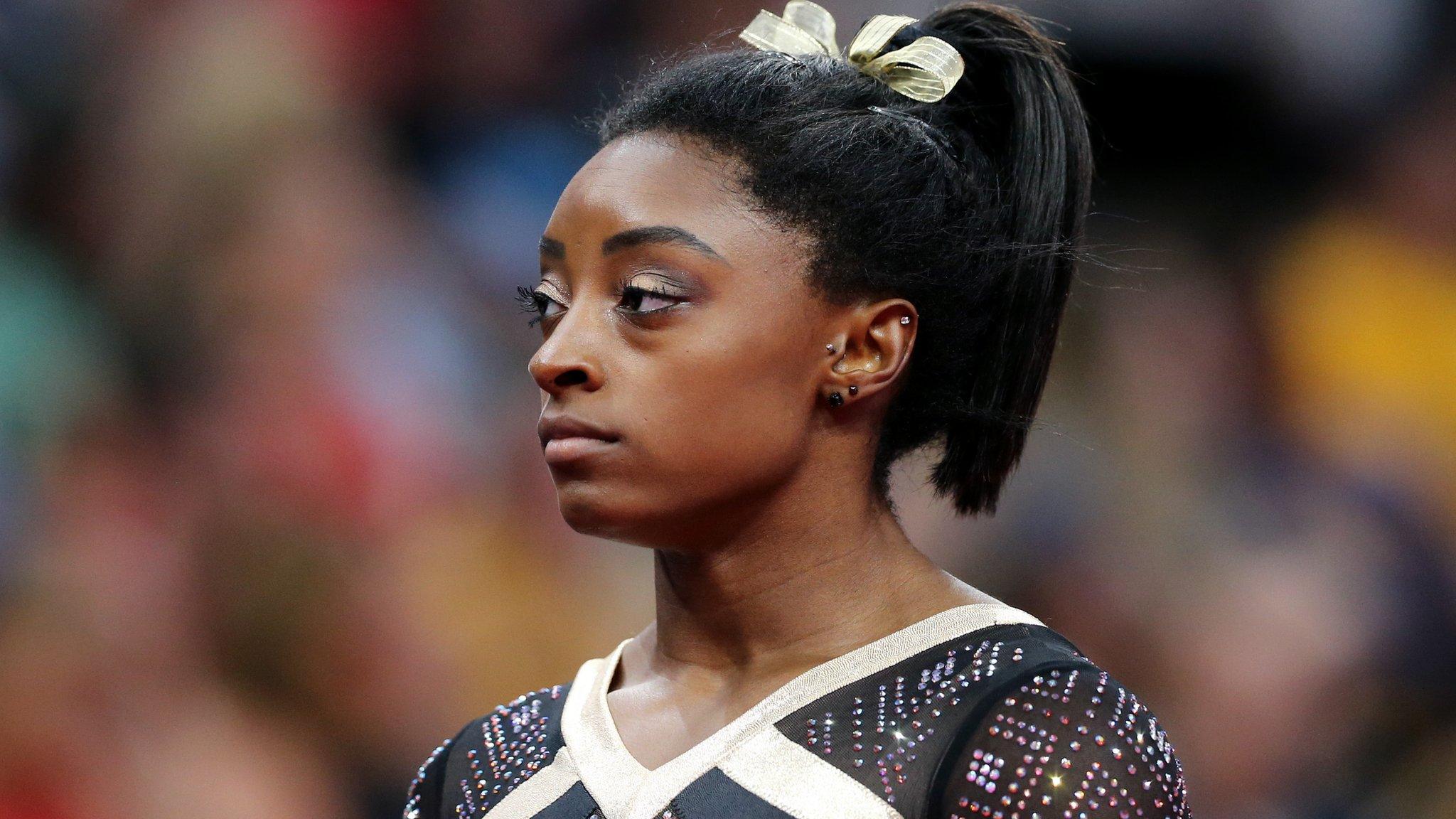Australian gymnastics inquiry uncovers 'culture of abuse'
- Published
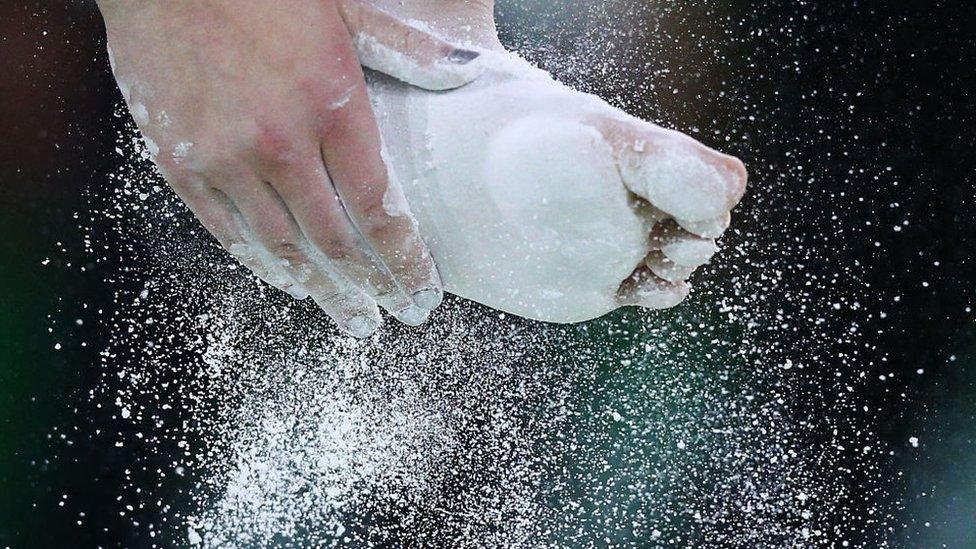
Gymnastics Australia has apologised "unreservedly" to all athletes after the report's release
An independent inquiry into gymnastics in Australia says it has uncovered a culture of physical, emotional and sexual abuse in the sport.
The Australian Human Rights Commission (AHRC) found that bullying and body-shaming were prevalent at elite levels.
The report highlighted a win-at-all-costs culture, external that created a risk of harm and abuse.
Gymnastics Australia, which commissioned the review last year, called the findings "confronting".
"Gymnastics Australia unreservedly apologises to all athletes and family members who have experienced any form of abuse participating in the sport," it said in a statement, external.
"We also thank the athletes and other community members who engaged in the review process and acknowledge their bravery in doing so."
What did the inquiry say?
The AHRC said the "athlete population in gymnastics is predominately young and female", creating a power imbalance between gymnasts and coaches in which abuse was able to thrive.
"The commission found that unique facets of gymnastics, including the extremely high proportion of young female athletes, contribute to a high-risk environment for abuse and for the maintenance and reinforcement of negative societal stereotypes and ideals around gender," it said.
The report said it had identified a win-at-all-costs culture that prevailed across the sport and that created "unacceptable risks for the safety and wellbeing of often very young gymnasts".
It said that although many athletes had positive experiences and relationships with their coaches there was "a persistent use of authoritarian or highly disciplinary coaching styles".
The AHRC said it heard of a range of experiences of harmful behaviour "including emotional and verbal abuse, physical abuse and medical negligence, sexual abuse, negative weight management practices and body shaming".
"The short and long-term impacts of these practices were reported to be profound, with recent former gymnasts and gymnasts who last trained in the 80s, 90s and 2000s sharing their experiences with the review," it said.
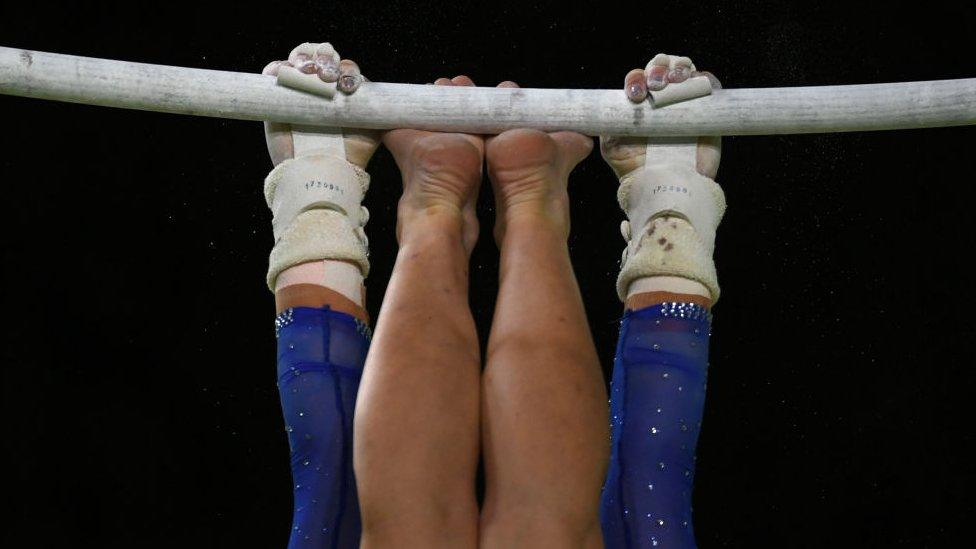
The report criticised what it called a "win-at-all-costs" culture in the sport
The report said that complaints procedures, while comprehensive, were not "actively and consistently implemented at all levels of the sport". It said many athletes reported concerns about processes for investigating and reporting abuse and misconduct.
The AHRC made five key findings and 12 recommendations - among them that all specific allegations of abuse be investigated independently, externally of the sport.
In its statement, Gymnastics Australia thanked the commission and said it would adopt all 12 recommendations.
"While important work has been undertaken in recent years to improve policies, education and support mechanisms for our athletes and coaches across child safety and athlete wellbeing, there is clearly more to be done," it said.
What led to the inquiry?
Last year, dozens of former top Australian gymnasts spoke out about mental and physical abuse they had suffered within the nation's elite programme.
In stories shared online, the said some coaches normalised a "toxic" environment.
Many said they had been encouraged to speak out following the release of the Netflix documentary "Athlete A", about the cover-up of abuse within the USA Gymnastics team.
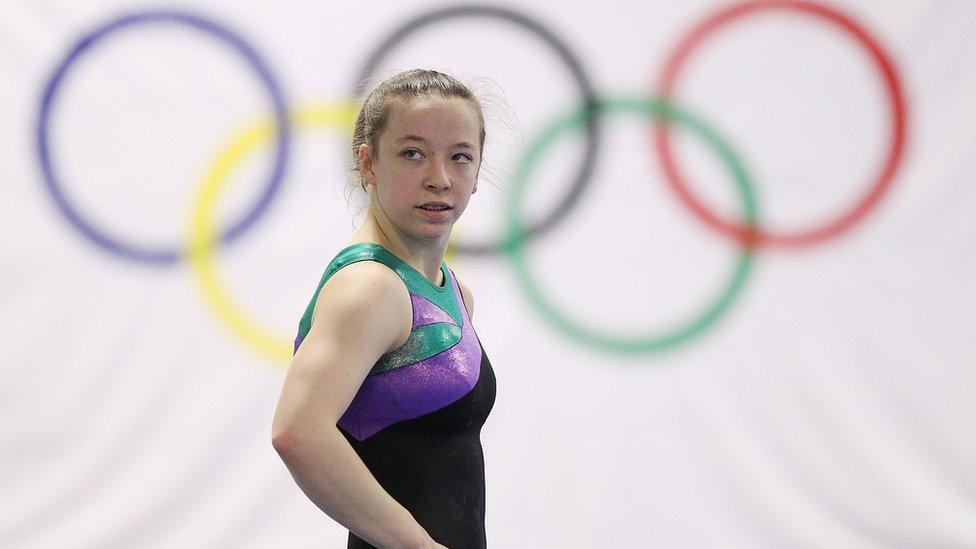
Former top gymnast Mary-Anne Monckton described the sport's culture as "insidious"
Mary-Anne Monckton, who won two silver medals at the 2014 Commonwealth Games, said she was "scared" to share her story, but added: "At some point, someone has to stand up for the athletes."
Chloe Gilliland, a gold medallist at the 2006 Commonwealth Games, said she had felt depressed and anxious at her "peak", and left the sport for her own wellbeing when she was 17.

You may also be interested in:
'My skating coach sexually abused me'
Related topics
- Attribution
- Published16 July 2020
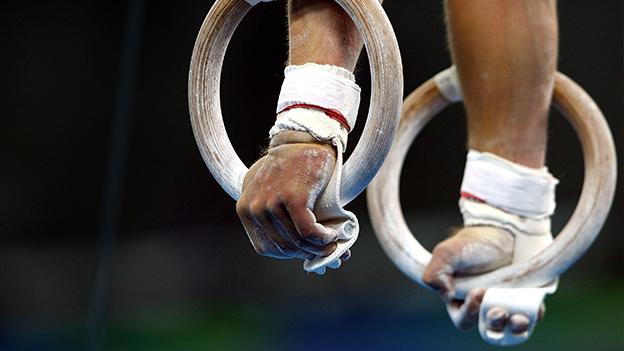
- Attribution
- Published10 July 2020

- Attribution
- Published24 June 2020
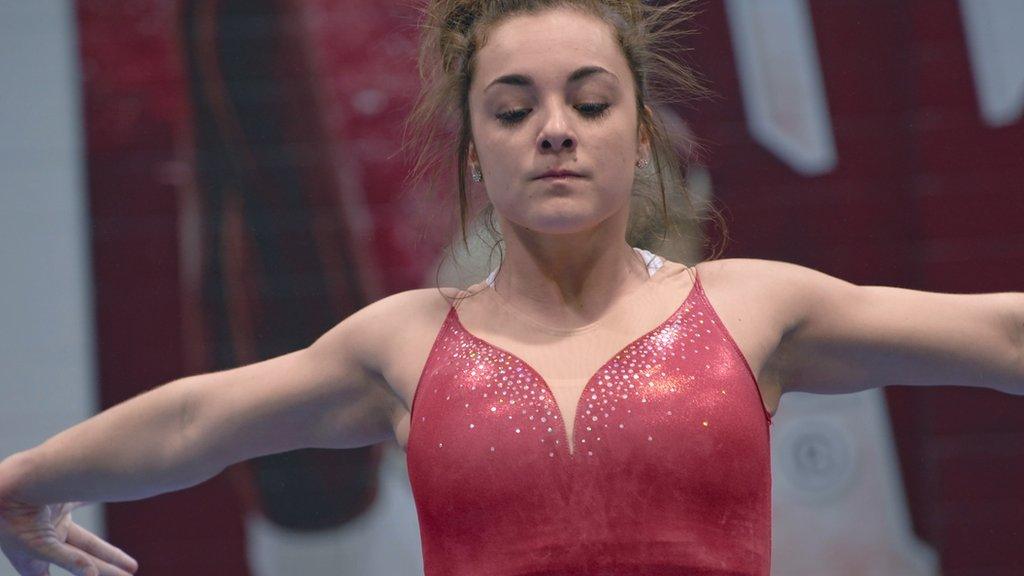
- Attribution
- Published10 October 2018
